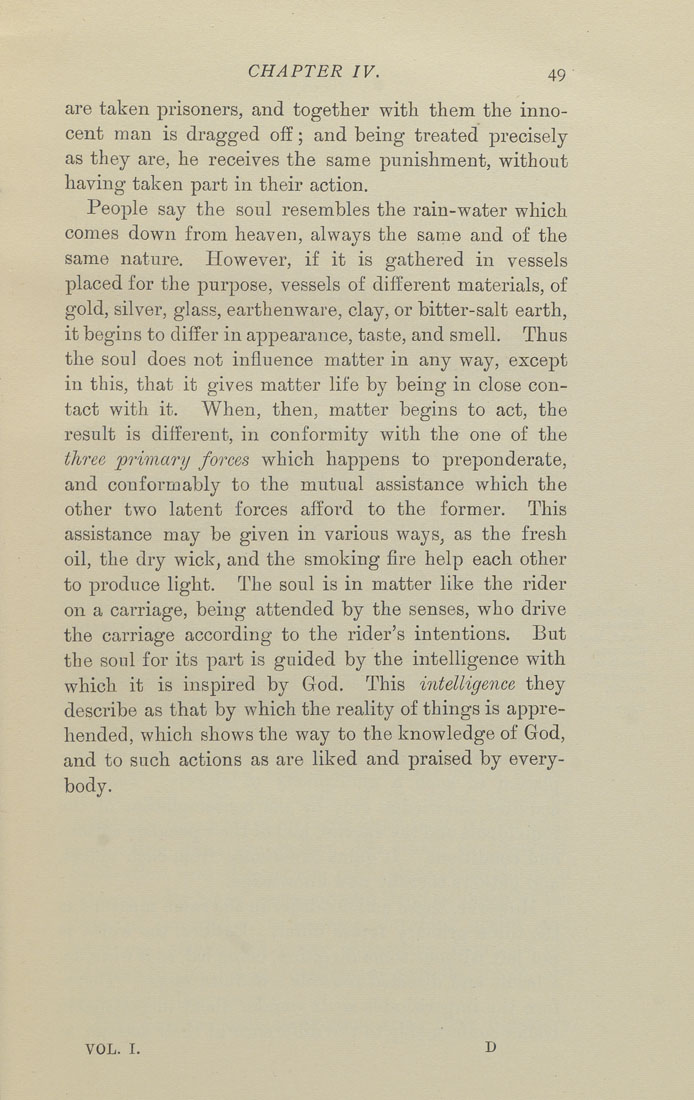Bīrūnī, Muḥammad ibn Aḥmad, Alberuni's India (v. 1)
(London : Kegan Paul, Trench, Trübner & Co., 1910.)
|
||
|
|
|
|
| Page 49 |

CHAPTER IV. 49 are taken prisoners, and together with them the inno¬ cent man is dragged off; and being treated precisely as they are, he receives the same punishment, without having taken part in their action. People say the soul resembles the rain-water which comes down from heaven, always the same and of the same nature. However, if it is gathered in vessels placed for the purpose, vessels of diff'erent materials, of gold, silver, glass, earthenware, clay, or bitter-salt earth, it begins to differ in appearance, taste, and smell. Thus the soul does not influence matter in any way, except in this, that it gives matter life by being in close con¬ tact with it. When, then, matter begins to act, the result is different, in conformity with the one of the three primary forces which happens to preponderate, and conformably to the mutual assistance which the other two latent forces afford to the former. This assistance may be given in various ways, as the fresh oil, the dry wick, and the smoking fire help each other to produce light. The soul is in matter like the rider on a carriage, being attended by the senses, who drive the carriage according to the rider's intentions. But the soul for its part is guided by the intelligence with which it is inspired by God, This intelligence they describe as that by which the reality of things is appre¬ hended, which shows the way to the knowledge of God, and to such actions as are liked and praised by every¬ body. VOL. I. |
| Page 49 |







